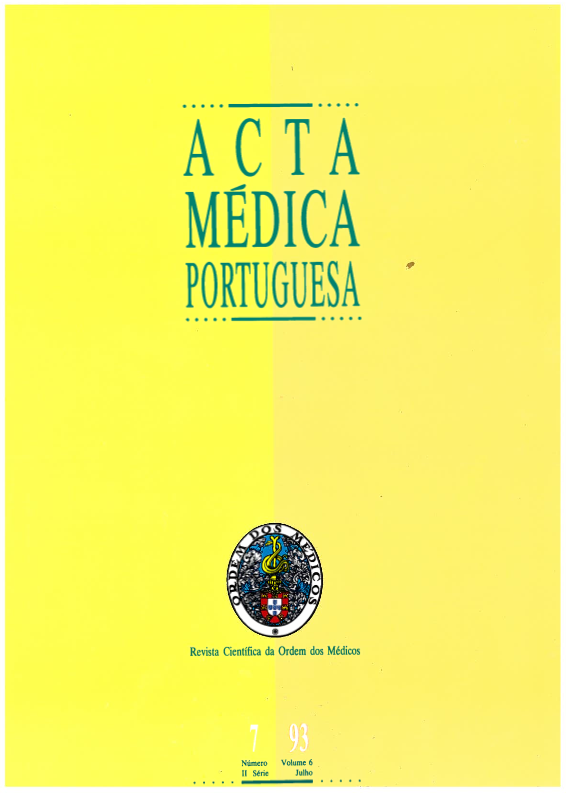A litotrícia extra-corporal por ondas de choque no tratamento da litíase vesicular. Os primeiros 109 doentes.
DOI:
https://doi.org/10.20344/amp.3109Resumo
The AA report their 15-month experience with extracorporeal shock-wave lithotripsy (ESWL) in the treatment of gallbladder stones (GS). The selection criteria included symptomatic patients, with 1 to 3 radiolucent stones in a functioning gallbladder. All patients were put on adjuvant therapy with 10 mg/Kg weight/day of ursodeoxycholic acid (ursodiol). ESWL sessions were performed in an ambulatory setting, using high-energy shock-waves (mean: 23 Kv) until fragments < or = 4mm were obtained, if possible. By the end of December 1992, 109 patients had completed the ESWL protocol, undergoing a total of 265 sessions (mean: 2.4 sessions per patient, variation 1-5). The stone-free (SF) rates and respective 95% confidence intervals were 31% (22%-43%) at 6 months and 59% (38%-76%) at 1 year of follow-up. For the subset of patients with a single stone < or = 2 cm (n = 59), were 47% (33%-63%) at 6 months and 77% (40%-95%) at 1 year. The most significant complication was acute biliary pancreatitis, of which we report 4 cases (4%). They were always mild and non-complicated. There was no mortality. The AA conclude that ESWL is a safe and effective treatment for selected patients with GS.Downloads
Downloads
Como Citar
Edição
Secção
Licença
Todos os artigos publicados na AMP são de acesso aberto e cumprem os requisitos das agências de financiamento ou instituições académicas. Relativamente à utilização por terceiros a AMP rege-se pelos termos da licença Creative Commons ‘Atribuição – Uso Não-Comercial – (CC-BY-NC)’.
É da responsabilidade do autor obter permissão para reproduzir figuras, tabelas, etc., de outras publicações. Após a aceitação de um artigo, os autores serão convidados a preencher uma “Declaração de Responsabilidade Autoral e Partilha de Direitos de Autor “(http://www.actamedicaportuguesa.com/info/AMP-NormasPublicacao.pdf) e a “Declaração de Potenciais Conflitos de Interesse” (http://www.icmje.org/conflicts-of-interest) do ICMJE. Será enviado um e-mail ao autor correspondente, confirmando a receção do manuscrito.
Após a publicação, os autores ficam autorizados a disponibilizar os seus artigos em repositórios das suas instituições de origem, desde que mencionem sempre onde foram publicados e de acordo com a licença Creative Commons









